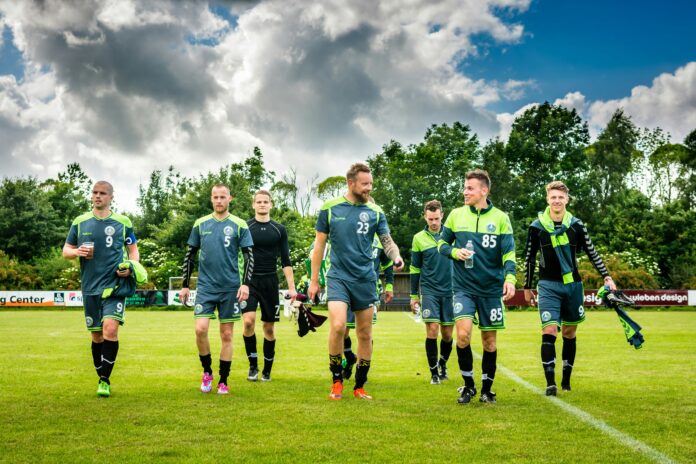Transitioning from collegiate football to the next stage of life can be daunting for many student-athletes. While many dream of playing professionally, only a select few make it to the professional leagues. However, the skills developed on the field – such as teamwork, discipline, and strategic thinking – are precious and can open doors to numerous career opportunities outside of professional sports.
Coaching and Sports Education
Many student-athletes find that transitioning into coaching or sports education is a natural fit after playing. This path allows them to stay connected to the sport they love and impart their knowledge and passion to the next generation of players. Whether becoming a football coach, a tactical analyst, or a physical education teacher, these roles enable former athletes to use their understanding of the game meaningfully. To pursue a career in coaching, one should consider gaining certifications such as those offered by national sports associations, which can boost credibility and employability.
Life after sports offers numerous career opportunities for student-athletes in football, such as coaching, sports analysis, and fitness training. Many also pursue sports management or marketing roles. Professional paid research paper services can help in the job application and relieve academic pressure so student-athletes can more effectively balance their studies and sports commitments.
Sports Management and Administration
For those drawn to the business side of sports, pursuing a career in sports management and administration offers diverse opportunities. Here are four roles in this field:
- Sports Agent: Represent athletes, negotiate contracts, and manage their public image and career growth.
- Team Manager: Oversee team operations, coordinate schedules, and meet all logistical needs.
- Sports Marketing Specialist: Develop marketing strategies to improve team or athlete visibility, engage fans, and drive revenue.
- Public Relations Officer: Manage communications and public interactions for sports teams or individual athletes, maintaining a positive public image.
Earning a degree in sports management provides the essential knowledge to excel in these roles, covering everything from operations to finance within sports organizations.
Fitness Training and Personal Coaching
Another avenue is fitness training and personal coaching. This role is perfect for athletes who strongly understand physical fitness and are passionate about helping others achieve their health and fitness goals. Personal training, strength and conditioning, and nutrition certifications can add significant value to a former athlete’s resume, making them well-suited for positions in gyms, schools, or private fitness studios. Moreover, with the growing focus on wellness, specialized training programs tailored by those who have competed at high levels can be particularly marketable.
Broadcasting and Media Relations
Athletes who excel in communication might thrive in sports broadcasting or media relations careers. These roles utilize their on-field experiences to offer insightful sports analysis, engaging commentary, and the opportunity to host sports-themed shows. This path is ideal for those adept at captivatingly explaining the game’s intricacies. To strengthen their prospects in this field, athletes may benefit from pursuing educational courses in the following areas:
- Communications: Building foundational skills in verbal and written communication.
- Media Studies: Understanding the landscape of modern media and learning how to navigate it effectively.
- Sports Journalism: Learning to craft compelling sports stories and articles.
- Broadcast Techniques: Gaining technical skills in television, radio, and online broadcasting.
Courses in these areas equip athletes with the tools to analyze and discuss sports proficiently, setting them up for success in sports media roles.
Entrepreneurial Ventures
Finally, many student-athletes channel their leadership skills and competitive spirit into entrepreneurial ventures. Starting a business related to sports, such as opening a sports facility, launching a sports equipment line, or developing a sports app, is one way in which athletes can transform their sports insight into business success. Entrepreneurship requires creativity, resilience, and a solid business plan, traits many athletes naturally possess.
Wrapping Up
In conclusion, the end of a sports career doesn’t mean the end of one’s professional journey. For student-athletes in football, there are numerous paths to explore that can lead to fulfilling and successful careers. By utilizing the skills honed on the field, former athletes can thrive in diverse roles that allow them to stay connected to sports, influence new generations, or even reshape the sports industry.



